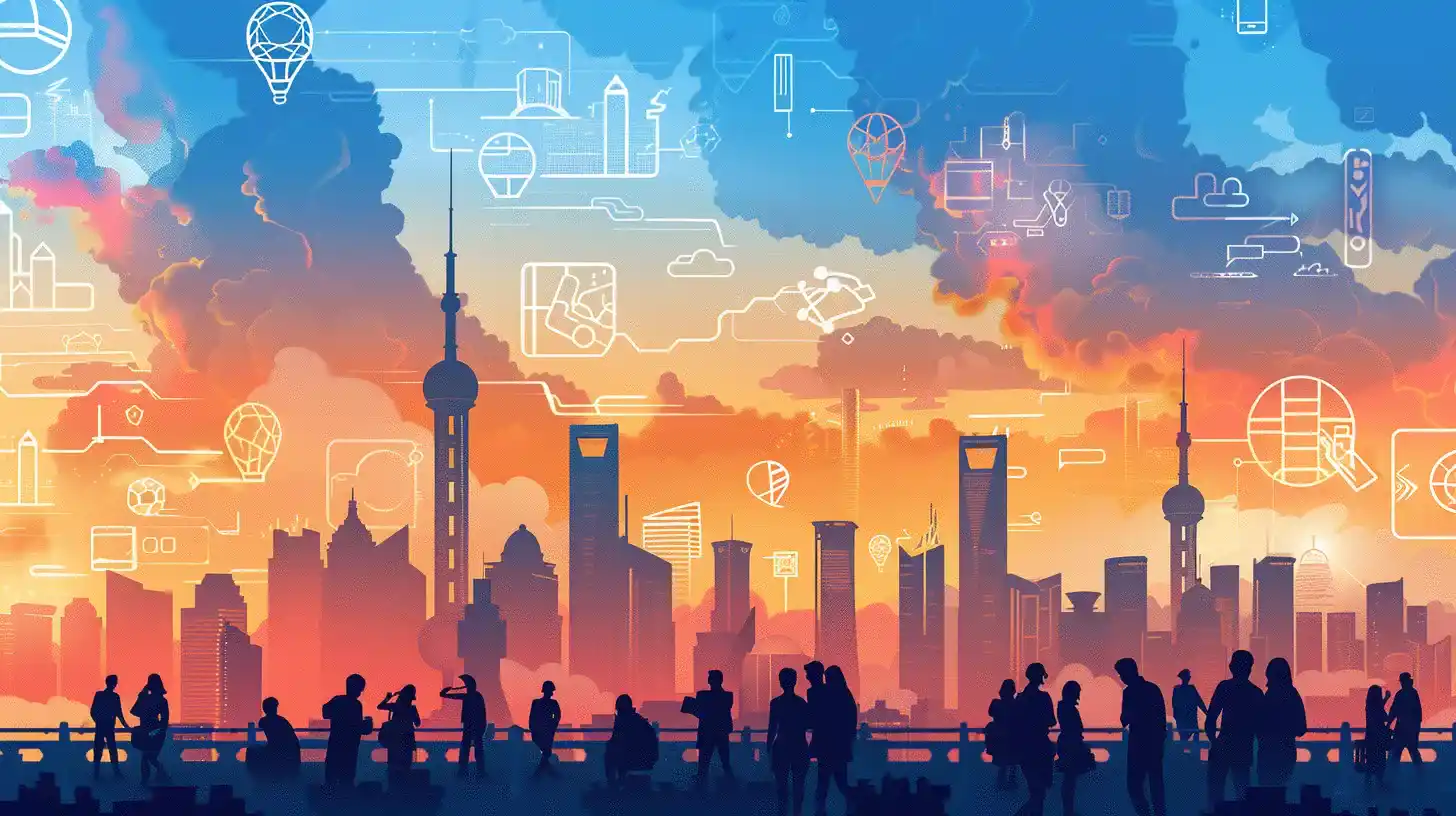Table of Contents
China Gen AI: In the dynamic landscape of artificial intelligence, Nvidia’s ascension in the stock market serves as a testament to the pivotal role of chip quality and availability. As the generative AI era unfolds, the quest for dominance intensifies, with China emerging as a formidable contender, aiming to narrow the gap with established players like OpenAI.
Pursuit in the China Gen AI Arena
Late to the game, China Gen AI is diligently striving to emulate OpenAI’s lead within the expansive U.S. AI market. Despite the dominance of tech giants like Microsoft, Google, and Amazon, China’s tech ecosystem is witnessing a surge in activity, albeit without a singular frontrunner in generative AI among its myriad tech titans and startups.

Closing the Gap: China’s Progress and Challenges
While China Gen AI trails behind in foundational models dominated by OpenAI and Google’s Gemini, the gap is gradually diminishing. Leveraging Meta’s open-source, large language model Llama 1, Chinese contenders are making strides, albeit acknowledging a lag of one to two years compared to their U.S. counterparts.
China’s Technological Ambitions and Talent Pool
Bolstered by a pool of tech talent and substantial investments, China Gen AI is fostering innovation across various fronts. Despite being home to 60% of top AI institutions, the U.S. maintains an edge in elite AI talent. However, China’s prowess in producing top-tier AI researchers underscores its growing influence in the global AI landscape.
Market Penetration and Adoption
China Gen AI market is marked by rapid adoption and mass outreach. Baidu’s Ernie Bot, with its impressive milestone of 100 million users, exemplifies China’s potential for swift market penetration. Collaborations with tech giants like Samsung and Apple further underscore the integration of Chinese gen AI technology into mainstream consumer devices.
Ecosystem Support and Development Initiatives
Supported by major players in China’s technology sector, numerous companies and research institutes are driving innovation in China Gen AI. Moonshot AI, funded by Alibaba, is pioneering large language models capable of handling extensive content inputs. Similarly, former Google China president Kai-Fu Lee’s venture, 01.AI, backed by Alibaba and Sinovation Ventures, is contributing to China Gen AI advancement.
Geopolitical Implications and Regulatory Landscape
The escalating tensions between the U.S. and China over technological innovation have spawned a divergent path in gen AI development. With regulatory hurdles and export controls looming, a bifurcation in gen AI ecosystems seems inevitable, delineating distinct spheres of influence for the U.S. and China.
Future Outlook and Challenges
As China continues its quest for AI supremacy, ethical and social concerns loom large. Balancing technological advancement with regulatory oversight poses significant challenges, necessitating a delicate equilibrium between innovation and governance.
In conclusion, China’s ambitions in the gen AI arena are emblematic of its broader technological aspirations. While significant strides have been made, formidable challenges persist, underscoring the nuanced dynamics shaping the future of AI development on the global stage.

Navigating Technological Frontiers and Ethical Considerations
China’s ascent in applying AI to domains like computer vision highlights its growing expertise in niche areas. However, challenges persist, particularly in addressing the chip shortage for training foundational models and ensuring indigenous solutions amid geopolitical tensions.
Strategic Business Integration and Sectoral Applications
The true potential of gen AI lies in its integration into business operations and specific industries. Companies like Alibaba and Huawei are spearheading efforts to embed AI within their ecosystems, signaling a paradigm shift in how AI is leveraged across sectors ranging from e-commerce to mining.
Adapting to Regulatory Dynamics and Public Perception
As regulatory frameworks evolve, businesses grapple with uncertainty surrounding gen AI adoption. Boston Consulting Group’s research underscores a cautious approach among executives, highlighting the need for clarity on regulatory guidelines and widespread employee training on gen AI tools.
Leadership and Collaborative Initiatives
China’s leadership in AI governance reflects its commitment to fostering collaboration and ensuring responsible AI development. Despite the challenges posed by open-source models in managing quality and security, China remains steadfast in promoting international cooperation to mitigate risks and maximize AI’s societal benefits.
Conclusion: Charting a Course Amid Uncertainty
In the grand tapestry of gen AI development, China’s trajectory is intertwined with geopolitical dynamics, technological advancements, and ethical imperatives. While challenges loom large, China’s unwavering commitment to innovation, coupled with strategic partnerships and regulatory foresight, bodes well for its emergence as a global AI powerhouse.
As the gen AI saga unfolds, China’s journey serves as a poignant reminder of the intricate interplay between technology, society, and governance in shaping the future of artificial intelligence. In navigating these uncharted waters, collaboration, innovation, and ethical stewardship will be paramount in realizing the full potential of gen AI for humanity’s collective advancement.